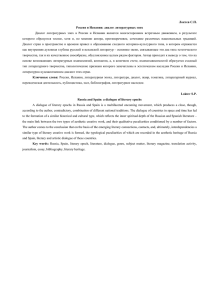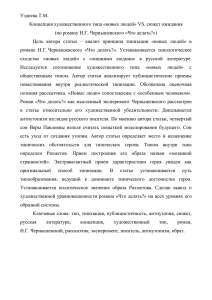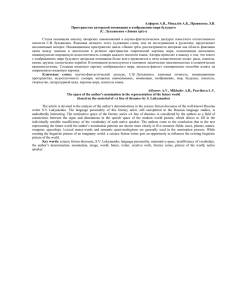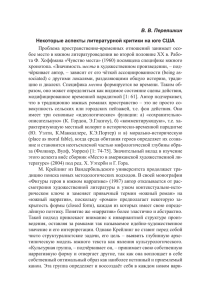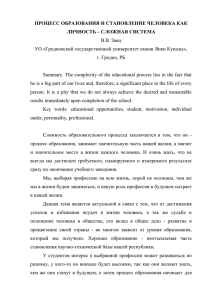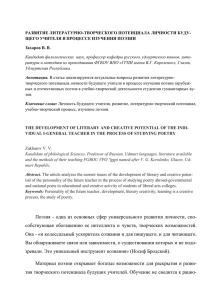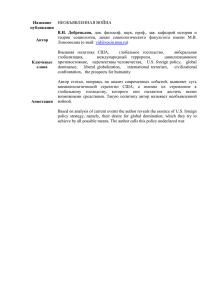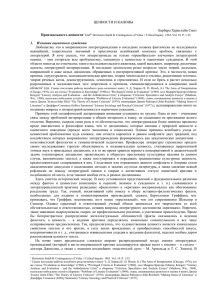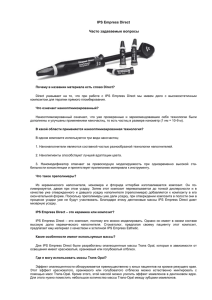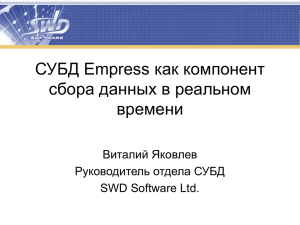Сушков А.В. Отражение воспитательных идеалов эпохи в
реклама
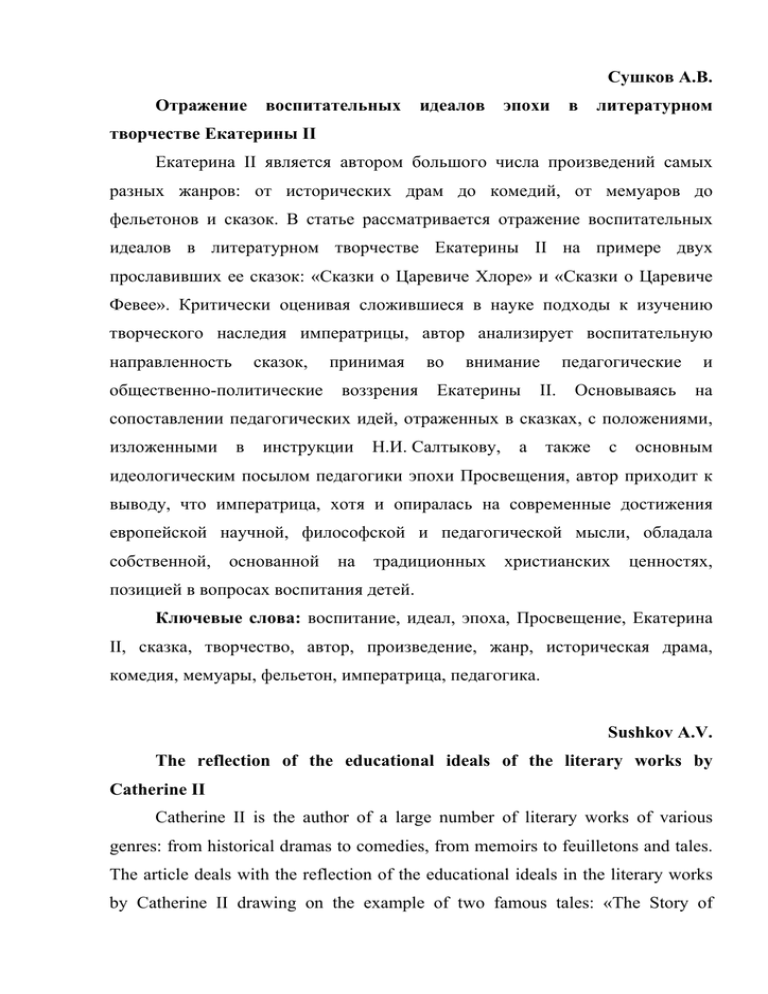
Сушков А.В. Отражение воспитательных идеалов эпохи в литературном творчестве Екатерины II Екатерина II является автором большого числа произведений самых разных жанров: от исторических драм до комедий, от мемуаров до фельетонов и сказок. В статье рассматривается отражение воспитательных идеалов в литературном творчестве Екатерины II на примере двух прославивших ее сказок: «Сказки о Царевиче Хлоре» и «Сказки о Царевиче Февее». Критически оценивая сложившиеся в науке подходы к изучению творческого наследия императрицы, автор анализирует воспитательную направленность сказок, общественно-политические принимая воззрения во внимание Екатерины II. педагогические и Основываясь на сопоставлении педагогических идей, отраженных в сказках, с положениями, изложенными в инструкции Н.И. Салтыкову, а также с основным идеологическим посылом педагогики эпохи Просвещения, автор приходит к выводу, что императрица, хотя и опиралась на современные достижения европейской научной, философской и педагогической мысли, обладала собственной, основанной на традиционных христианских ценностях, позицией в вопросах воспитания детей. Ключевые слова: воспитание, идеал, эпоха, Просвещение, Екатерина II, сказка, творчество, автор, произведение, жанр, историческая драма, комедия, мемуары, фельетон, императрица, педагогика. Sushkov A.V. The reflection of the educational ideals of the literary works by Catherine II Catherine II is the author of a large number of literary works of various genres: from historical dramas to comedies, from memoirs to feuilletons and tales. The article deals with the reflection of the educational ideals in the literary works by Catherine II drawing on the example of two famous tales: «The Story of Tsarevich Chlor» and «The Story of Tsarevich Fevey». Critically evaluating the existing scientific approaches to the study of the literary heritage of the Empress, the author analyzes the educational orientation of tales, taking into account the educational and socio-political views of Catherine II. On the basis of the comparison of the pedagogical ideas reflected in the tales with the provisions stated in the instructions to N.I. Saltykov, as well as with the main ideological message of Pedagogy in the Age of Enlightenment, the author comes to the conclusion that the Empress, although she relied on the modern achievements of the European scientific, philosophical and pedagogical thought, had her own, based on the traditional Christian values, position in the parenting issues. Key words: education, ideal, Age of Enlightenment, Catherine II, tale, creative work, author, literary work, genre, historical drama, comedy, memoirs, feuilleton, Empress, pedagogy.
